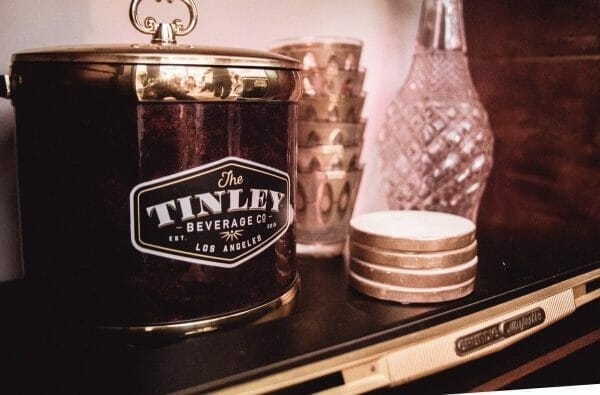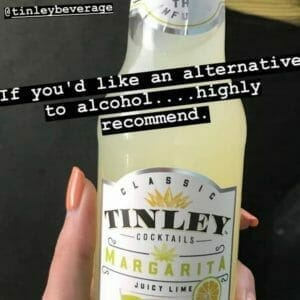The Tinley Beverage Company (TNY.C) completed the phase two expansion of its Coachella Valley bottling facility in California.
This newly expanded facility is expected to put Tinley’s next-generation of cocktail-inspired, non-alcoholic beverages on store shelves in April.
The completion of phase three will boost Tinley’s bottling capacity to over 12 million units a year, raising Tinley’s production ability from three million bottles a year, and adding enough space for two extra bottling lines and beverage formats.
The company plans to cut costs by utilizing the expanded Coachella facility to implement a direct store delivery model (DSD).
The DSD model lets Tinley cut operating costs by selling directly to dispensaries rather than going through a third-party.
The company projects that the price for its single-serve drinks will be $3-4 a bottle and USD$15-$17 a bottle for its multi-serve beverages.
Tinley is also on schedule to complete their phase three facility in Long Beach, California.
Tinley reimagined and repackaged
The company’s latest cannabis-infused beverage line will have clean label claims and packaging in compliance with California’s new regulations.
Tinley shipped over $100,000 of cannabis-infused drinks to its distributors in Q3 2018 before the California Department of Public Health Manufactured Cannabis Safety Branch released their 2019 packaging requirements.
Despite this production hiccup, almost all the stores that had stocked Tinley products before the production shutdown placed new orders, and the company actually scaled up to meet enhanced demand.
In fact, Tinley is backordered at 10% of licensed stores state-wide, amounting to approximately 50 dispensaries.
The company expects to start producing $200,000 worth of the next-generation Margarita and the Moscow Mule-inspired beverages to fulfill this backlog.
Once completed, Tinley said it will pivot into production of their non-alcoholic Tinley ’27 products.
Equity.Guru’s own Chris Parry wrote about this product line in March 2018.
“Four products designed with the same extracts, ethers, essences and flavors as famous alcoholic beverages, but with the alcohol removed and replaced with THC. In essence, one shot of Tinley ’27 matches the buzz you’d get from its alcoholic counterpart, without the hangover, the dehydration, and the expensive nightclub bill.”
During the production halt, Tinley implemented a new water-soluble technology to their drinks and halved the amount of cannabis in their beverages to 5 mg.
According to Tinley’s CEO, the next generation of beverages allows for faster offset times from reduced bioavailability.
“The truth is that people don’t want to have the effect last for eight hours, which is the typical length of an edibles effect. We’ve found a way to cut off the tail of that so it lasts shorter.”
Tinley chose this technology from 13 candidate technology suppliers and combined it with their own pre-existing technologies, methods and flavour systems. The updated products are vegan, gluten free and contain as little as one gram of sugar per serving.
Here’s the entire interview:
https://www.youtube.com/watch?v=ZglE3CLqaV4
The Tinley Beverage Company has 91,427,034 issued and outstanding shares with a market cap of $65.8 million.
Shares rose CAD$0.04 today and are trading at $0.72 per share.
–Joseph Morton
Full disclosure: The Tinley Beverage Company is an Equity.Guru marketing client.



I think you meant ” raising Tinley’s production ability FROM three million bottles a year”
From, not By
Thank you for pointing that out. I appreciate it.
Hi Joseph,
Thanks for the update on Tinley.
Towards the end of the interview with Jeff Maser, he mentions about them lowering the THC content from 10% to 5%, in part due to the new “water soluble” technology that they’re using.
Can you confirm if they’re using Infusion Bioscience’s APP technology?
If so, as Tinley is a Canadian company, is their use of the APP technology licensed through Sproutly?
Approximately 2.2 million shares of Sproutly were traded yesterday…about 10x their normal volume, and their price increased almost 25%
Thanks!
Hi Jaff,
I passed that inquiry on over to Tinley and got a response from Jeff Maser.
“We evaluated 13 companies’ technologies and selected the one we feel is the best fit for our particular products. I know it sounds like a lame answer, but it’s rare for consumer products companies to reveal their suppliers because they’re trade secrets. It may be exciting for stock trading but it can really hurt the businesses themselves. If you look at the other THC beverage companies that are in market, they don’t reveal them either, unless they’re their own technologies.”
It’s more or less what I expected to hear, but I thought I’d give Mister Maser the opportunity to speak. I wish I had a more substantial answer for you.
No problem Joseph, I appreciate your efforts!